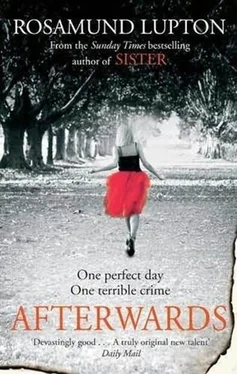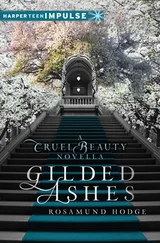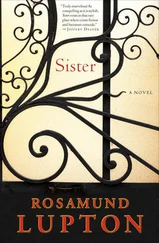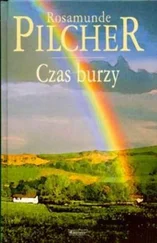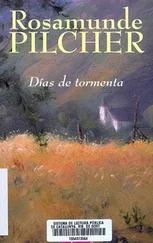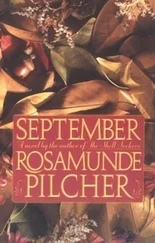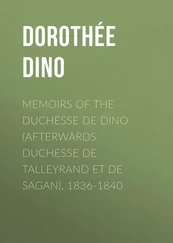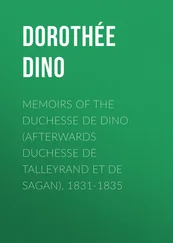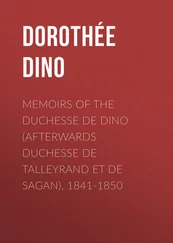‘I’m afraid that her head injury is severe. A firefighter told us that a part of the ceiling had fallen on her.’
There’s tension stringing Dr Bailstrom’s words together.
‘She has unequal pupil reflexes and isn’t responding to stimuli,’ she continues, her voice tight as wire. ‘The MRI, which we will repeat, indicates significant brain damage.’
‘She’ll be alright.’ Your voice is fierce. Your fingers tense around mine. ‘You’re going to be fine , my darling.’
Of course I am! I can quote medieval poetry and tell you about Fra Angelico or Obama’s health reforms and the heroes in Beast Quest books – and how many people can do all that? Even my bossy nanny is still in place, in her element actually. The thinking me isn’t in the body me, but I’m right here, my darling, my mind undamaged.
‘We have to warn you that there’s a likelihood she may never regain consciousness.’
You turn away from her, your body language saying, ‘Bollocks!’
And I think you’re right. I’m pretty sure that if I tried, I’d be able to get back into my body. And then – maybe not right away but soon – I’d wake up again. Regain consciousness , to put it into Dr Bailstrom language.
Dr Bailstrom is now leaving, precipitous on her red spiky heels on the slippery linoleum. She’s probably letting you have some time for it to sink in. Dad, with his GP hat on, was a firm believer in sinking-in time.
I’m talking too much. The problem with being ‘out of body’ is that you don’t need to take a breath for new sentences and so there are no natural physical pauses.
And you’re so quiet. I think you have stopped talking to me altogether. And I am so afraid that I scream at you.
‘Jenny’s been badly hurt, darling,’ you say. And my fear is swept away in compassion for you. You tell me that she’ll get better. You tell me that I’ll get better too. We’ll be ‘ right as rain ,’ again.
As you talk I look at your arms: strong arms that years ago carried three boxes of my books at a time from the bottom of the student house to my room at the top; that on Tuesday carried Jenny’s new chest of drawers upstairs to her bedroom.
Is your character that strong too? Is it really possible to be as brave as you are now – this resiliently hopeful?
You talk about the holiday we’re going to take when this is ‘ all over ’.
‘Skye. And we’ll camp. Adam’ll love that. Making a fire and fishing for our supper. Jenny and I can climb the Cuillins. Addie can manage the smallest one now. You can take a whole stack of books and read by a loch. What do you think?’
I think it sounds like a paradise on earth that I never knew was there.
I think that while I have my head in the clouds, you climb a mountain to do it.
As I did earlier at Jenny’s bedside, I cling onto your hope; let myself be carried by it.
I see that Sarah has arrived on the far side of the ward, on her phone. Busy, efficient Sarah. The first time you introduced us I felt I was being interviewed for something I’d inadvertently done wrong. But what? The crime of loving you and plotting to take you away from her? Or, worse, of being fraudulent in my affections and not loving you enough ? Or maybe – the one I picked – not being worthy of you; not being as interesting and beautiful and downright remarkable as I should be if I was going to claim her brother and become a part of your clan.
Even before this, I saw myself paddling round a duck pond in a rubber dinghy, while she steered her life on a fast, direct course to a clearly mapped destination. And now here I am, unable to speak or see or move, let alone help you or Jenny or Adam, head partially shaved, in a hideous hospital nightgown – and she’s sailed in, competent and capable, at the helm.
My nanny voice would be a lot happier if I were more like her. You reassured me, touchingly, that you wouldn’t be.
A nurse is with her and I see they’re debating the phone, with Sarah flashing her warrant card, but the nurse is clearly adamant and Sarah leaves again. You spot her as she leaves, but stay with me.
We return to that camping trip to Skye – to arching blue-grey skies and still blue-grey water and huge blue-grey mountains, their soft colours so alike that they are almost indistinguishable from one another; to Jenny and Adam and you and me, softly coloured, not separated from each other. A family.
We leave my ward and Skye, and I see Jenny waiting for me in the corridor.
‘So, what’s happening to you?’ she asks me, her voice anxious.
‘They’re doing scans and what not,’ I say.
She hasn’t been giving us romantic privacy, I realise, but medical privacy; like me staying out of the room now when I take her to the GP’s.
‘And that’s it?’ she asks.
‘So far, yes. Pretty much.’
She doesn’t question me more closely – afraid, I think, to know any more.
‘Aunt Sarah’s in the family room,’ she says. ‘She’s been talking to someone at the police station. It’s funny, but I think she knows I’m here. I mean, she kept kind of glancing around at me. Like she’d caught a glimpse.’
It’ll be sod’s law if the only person who has any real inkling of Jenny and me turns out to be your sister.
It must be late evening now and in the family room, someone – who? – has brought a toothbrush and pyjamas for you and put them neatly at one end of the single bed.
Sarah closes the phone as she sees you.
‘Adam’s at a school-friend’s house,’ Sarah says. ‘Georgina’s on her way from Oxfordshire and will pick him up. I thought it would be best if he was in his own bed tonight and he’s particularly close to Grace’s mum, isn’t he?’
In all of this Sarah has found space and time to think about Adam. Has had the kindness to worry about him. I’ve never been grateful to her before.
But you can’t take Adam on board, not with me and Jenny already weighing you down this heavily.
‘Have you spoken to the police?’ you ask her.
She nods and you wait for her to tell you.
‘We’re taking statements. They’ll keep me fully informed. They know she’s my niece. The fire investigation team are working at the scene of the fire.’
Her voice is police officer, but I see her reach out her hand and that you take it.
‘They’ve said that the fire started in the Art room on the second floor. Because the building was old, it had ceiling, wall and roof voids – basically spaces connecting different rooms and parts of the school – which means that smoke and fire could travel extremely fast. Fire doors and other precautions couldn’t stop its spread. Which is one reason it could overwhelm the whole building as quickly as it could.’
‘And the arson?’ you ask, and I can hear the word cutting at your mouth.
‘It is likely, more than likely, that an accelerant was used, probably white spirit, which causes a distinctive smoke recognised by a firefighter at the scene. As it’s an Art room, you’d expect to have some white spirit, but they think it was a large quantity. The Art teacher says that she keeps the white spirit in a locked cupboard on the right-hand side of the Art room. We think the fire was started in the left-hand corner. A hydrocarbon vapour detector should give us more information tomorrow.’
‘So there’s no doubt?’ you ask.
‘I’m sorry, Mike.’
‘What else?’ you ask. You need to know everything . A man who has to be in full possession of the facts.
‘The fire investigation team have established that the windows on the top floors were all wide open,’ Sarah says. ‘Which is another signifier for arson because it creates a draught, drawing the fire more quickly up through the school; especially given the strong breeze today. The head teacher told us that the windows are never left wide open because of the danger of children falling out.’
Читать дальше
